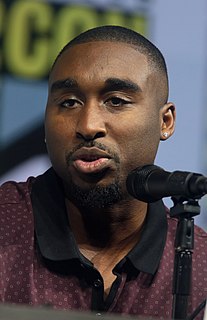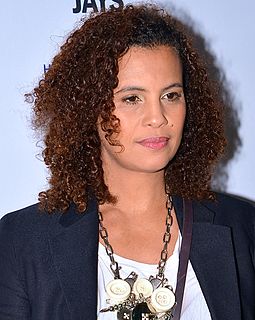A Quote by Mos Def
Bob Marley performed the 'One Love Peace' concert in Jamaica with the two different warring political sides. There's always been that in black music and culture in general. It's no surprise because black music is such a reflection of what's going on in black life. It's not unusual for hip-hop.
Related Quotes
This is more in regards to celebrities. What we've got to understand is that we are the influencers of the hip-hop culture, the black culture. We are the way out, you feel what I'm sayin'? As far as who we look to and where we get stuff from - hip-hop culture is influencing the world, really, but especially the black communities.
All the forms of popular music from jazz to hip-hop, to bebop, to soul [come from black innovation]. You talk about different dances from the catwalk, to the jitterbug, to the Charleston, to break dancing -\-\ all these are forms of black dancing...What would [life] be without a song, without a dance, and joy and laughter, and music.
There are many things that black women can continue to do to help black folk. First, black women have historically been among the most vocal advocates for equality in our community. We must take full advantage of such courage by continuing to combat the sexism in our communities. Black women, whether in church, or hip-hop, don't receive their just due. Second, when black women are in charge of child-rearing, they must make ever so sure to raise black children who respect both men and women, and who root out the malevolent beliefs about women that shatter our culture.



































